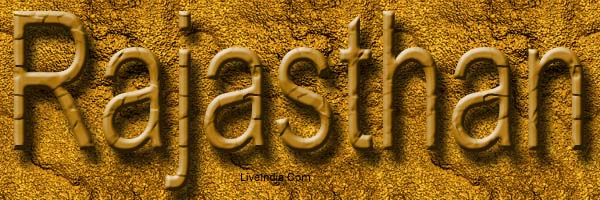 |
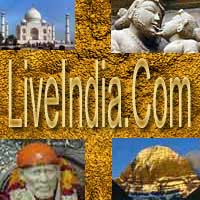 |
 |
 |
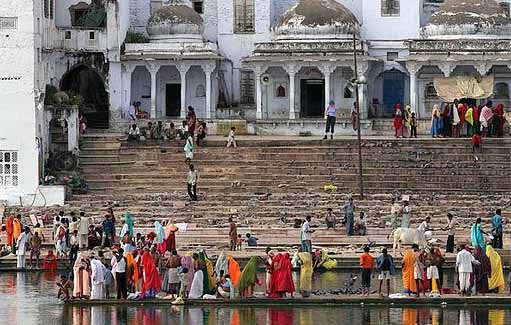 |
| AJMER | ALWAR | BHARATPUR | CHITAURGARH |
| JAIPUR | JAISELMER | JHALAWAR | JODHPUR |
| KOTA | MOUNT ABU | Pushkar | RANAKPUR |
| UDAIPUR | Hotels in India | Home | Gallery |

 |
| Pushkar Lake (11km.)
The lake is situated on the edge of the desert and surrounded by hills on three sides, is separated from Ajmer by ‘Nag Pahar’-the snake mountain. On this mountain the Panchkund and the cave of the saint Agastya are located. It is believed that Kalidas-the 4th century sanskrit poet and playright , chose the setting for his masterpiece Abhigyanam 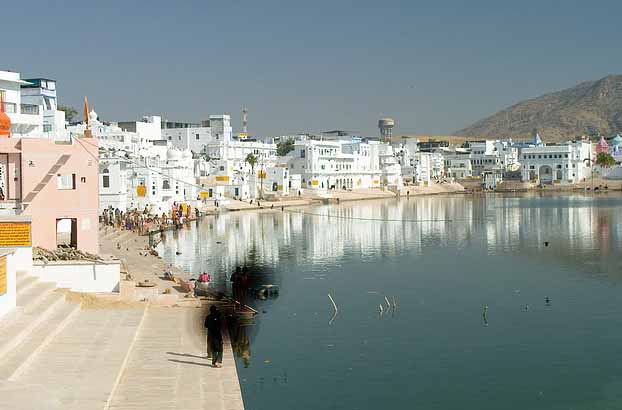 According to legend , the origin of Pushkar dates aback to the time when lord Brahma was on his way in search of a tranquil land to perform a Yagna. A lotus fell from the hands of the lord into this valley. A lake sprang up on this spot and was dedicated to him. A Brahma temple located here is a popular place of pilgrimage |
| Pushkar
Fair: It is one of the most colorful fairs of India. Lakes of pilgrims
throng the lake during the annual cattle fair. Besides trading of horses,
camels, cows and bulls, there are exciting camel-cart races and cultural
events. Cloths, household items and leather goods are for sale during the
fair. On the full moon of Kartik(Nov.) pilgrims take a holy dip in the
lake.
Man Mahal: Along the banks of the Pushkar Lake is the former residence of Raja Man Singh of Amer, Man Mahal. Presently it is converted to RTDC Sarover Tourist Bungalow ensuring convenient accommodation to travellers.Pushakar palace ( Kishangarh House) adjoining it is a heritage hotel. Foy Sagar(5km) : A picturesque artificial lake named after the engineer for who created it under a famine relief project. Shopping : Shopping in Ajmer is an enjoyable experience. One can shop for antiques, curios, fascinating gold and silver jewelry in contemporary designs, colorful tie-and-dye sarees and embroidered jodhpuri ‘Jutis’. Especially during the annual Urs fair, a range of colourful items and marvellous creations of traditional folk aristsans are for sale. 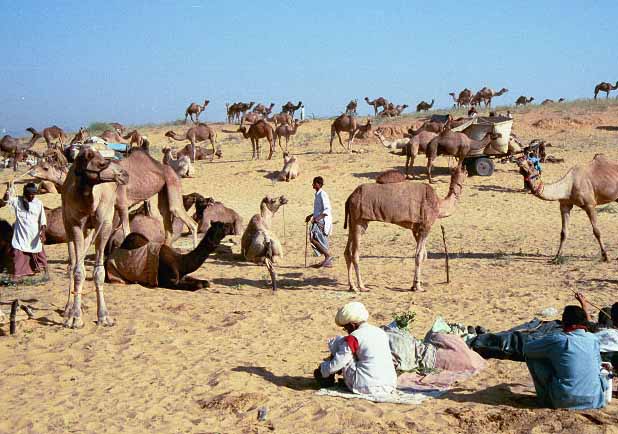 Air: Jaipur 132 km is the nearest airport. Rail: Regular train services link Ajmer with important cities.Some important train connections are: Gujrat Mail (Mumbai-Ajmer-Delhi Sarai Rohilla); Jodhpur Mail (Marwar-Ajmer-Jaipur): Delhi, Express(Ahmedabad-Ajmer-Jaipur);Shatabadi Express(New Delhi-Ajmer-New Delhi). Road: A good network of bus services operate from Ajmer to key destinations around. Local Transport: City bus service operate in the city and to Pushkar. Unmetered taxis, auto-rickshaws, tongas, and cycle-rickshaws are also available. OTHER USEFUL INFORMATION Banks/Money Changers: Bank of Baroda,Prithviraj Marg, Bank of Bikaner & Jaipur,Station Road, Bank of India,Kaisarganj, Bank of Rajasthan,Mayo College, Central Bank of India, Punjab National Bank, Prithviraj Marg, State Bank of India, near Collectorate, Also,authorized money changers are available in the leading hotels. Hospitals: J.L. Nehru Hospital Club: Ajmer Club Tourist Reception Centre: Assistant Director,Tourist Reception Centre, Hotel Khadim(RTDC), Tourist Information Counter at Railway Station. Guide Service:Approved guides may be hired through the Asstt. Director, Tourist Reception Centre Important Telephone Numbers: Police Control Room Roadways (Central Bus Stand), Railways, 131 (Enquiry), 132 (Reservation), General Post . 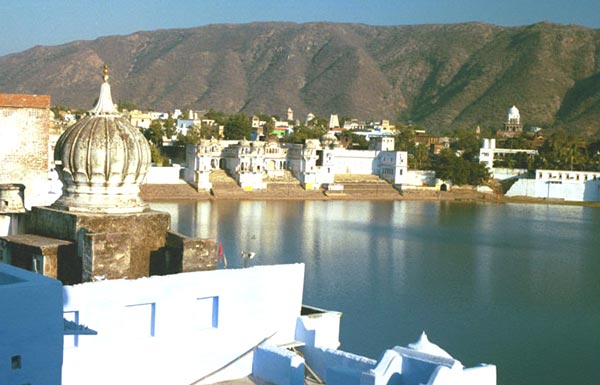 Area :55.76 sq.km.
Getting there
By Bus
By Train
Gettig Around
Shopping
Particularly good buys include silver and beaded jewellery, embroidered fabrics, bed and cushion covers. Rajasthani puppets and fusion music. Its also great place to but books. There's is a excellent range of second hand novels in various language available. Things to do
Places to See
Ghats
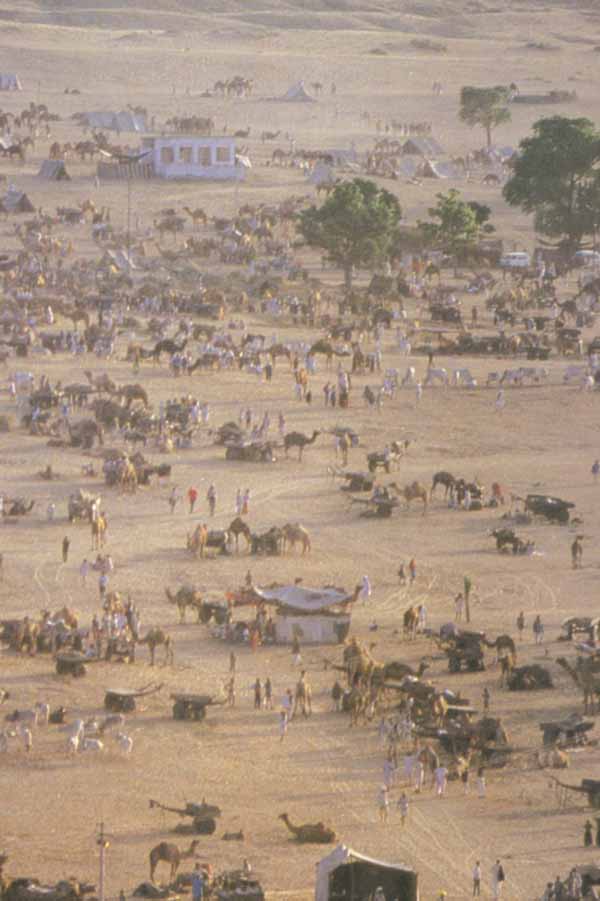 Places to Visit
|
|
|
|
|
|
Rajasthan News |
| Firstly, Pushkar is 'Teerth
Raj' or the king of pilgrimages. People come to take a holy dip in the
lake on auspicious days, particularly on full moon nights. The villagers
club their pilgrimage with their buying and selling in the local market.
Its hills divide eastern Rajasthan from the west. In east Pushkar, there
is a green valley and rose plantations of the finest variety brought from
Persia by the emperor Jehangir. The Pandavas are believed to have camped
here near a spring called Pandavpol. In the west, are the semi-arid sand
dunes. The spectacular scenic beauty is created by the lake, hills and
the unexpected mix of ecologies. Finally, Pushkar has become a significant
international tourist destination and has earned the fame of being holding
one of the most colourful fairs in the world.
In Rajasthan where animal husbandry is a major source of livelihood, the close relationship between animals is widely celebrated. Some of the rural heroes and deities like Ramdeoji died protecting cattle. The legends of the heroic camels of Dhola Maru and Mumal apart from the Chetak horse of Rana Pratap have acquired cult status. The best breeds of camels come from Bikaner. They are more elegant and hardy and known for their intricate maneuvering as testified by their inclusion in the old Bikaner forces and now in the border security forces. It is believed that camel milk is nutritious and good for the skin. Like the bullock cart in other regions the camel cart with airplane tyres has been widely used in Rajasthan. Recently the camel trade has shown a decline because the Raibaris and other camel breeders find that their traditional grazing routes have been taken over forcing the younger generation to look for other jobs. The Pushkar Fair marks both a religiously auspicious time as well as the change of seasons when the rural people have time and, hopefully, money to make purchases. Most of the animals traded are camels but there are a large number of bulls and horses. Now many villagers watch with amazement the increasing number of foreign tourists who land up at the fair. The locals are also increasingly being pushed to the corner as businesses to cater to the tourists are increasing by the day. Affluence is setting in with hotel tariffs for the tourists shooting up. While much money is spent on lighting, decoration and laying of new stones in the ghats, the water in the lake is deteriorating. Traditionally, it is the sacred water itself, which has been worshipped as the giver the life and the healer and not the deities. In order to channel crores of rupees pouring in, there is the need for setting up of a Pushkar Development Council, consisting of concerned persons in the government, municipality, NGOs and environmentalists. Based on existing reports and new studies, the Council can recommend an integrated plan of action to regenerate and develop the lake. De-silting, cleaning of the lake and the watershed, planting tree and shrubs to stop sand erosion, and limiting the number of tube wells in the region are some of the options. Recently, over a lakh dead fish has been the cause for the unbearable stench in the vicinity of the lake. The spiritual and cultural values and the tranquil atmosphere in Pushkar have also declined with proliferating commerce and tourism. Pujas are performed to fleece tourists and hand them what has infamously called the Pushkar visa ensuring that they are not hassled from thereon. The association of the priests needs to ensure that only trained priests perform the pujas at a fixed rate. Increasing traffic and music from restaurants have been responsible for the pollution. Pushkar has become a market place for clothes, relatively inexpensive living and cheap drugs. There are many genuine tourists but the young, adventures types—many of them Israelis—come to have fun among themselves and get high on drugs. They are not at all sensitive to the local culture and customs of this historically religious place. Local boys grow up aspiring for Western lifestyle and girlfriends. Guidelines need to be in place for the tourists visiting this town so that they not hurt the cultural sentiments of the locals. A three dimensional reform in Pushkar is needed: firstly, to regenerate the lake and its surroundings, secondly to improve the quality of tourism and spiritual and cultural atmosphere. Only then, a trip to the Pushkar fair can bring about true fulfillment. |
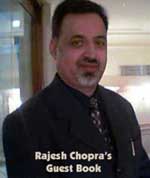 |
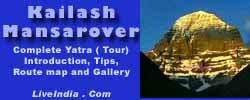 |
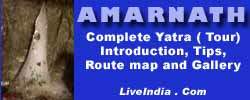 |
 |
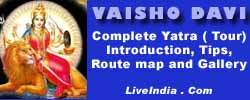 |

Miss World - 2000 Priyanka Chopra |
 |
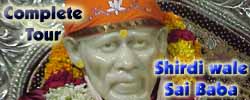 |
 |
 |
 |
 |
 |
 |
 |
| Privacy Policy for LiveIndia.Com |